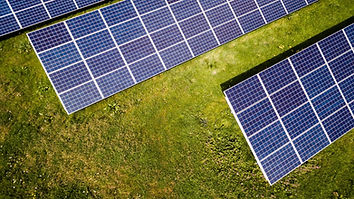
How to Determine if On-Site or Offsite Solar Energy is Right for You
Going solar definitely has its advantages. Solar energy has the power to mitigate energy-related risk. Offering a fixed-rate term of 20 years, there’s no need to worry about the impact of volatile energy markets. Solar energy also provides maximum protection on your financial investment so you can focus on the rest of your business, including reaching long-term carbon reduction goals. But, how do you know if on-site or offsite solar energy is right for you? Let us help you find the right solution.
The Five S’s of Solar Energy
Location restraints drive the decision. Consider your site, including the grounds and the roof. We’ve broken it down into five key questions to make it easier for you:
-
SHADE Does your site have more sun than shade?
-
SLANT Does your site feature a steep pitch?
-
STATE Is your site in good condition?
-
SIZE Is your site large enough to engineer a cost-efficient system?
-
SPACE Does your site have adequate spacing and is it relatively clear of equipment?
If you answered YES to these questions, you’re a good candidate for on-site solar energy. Read on for more information about on-site solar. If you answered NO to any of these questions, you might want to consider offsite solar. Learn more about the benefits of an offsite solar program.
Benefits of On-Site Solar
On-site solar provides the strongest financial and environmental value because it offers “Behind the Meter” (BTM) benefits.
-
Reduce carbon footprint of the building by generating electricity locally from renewable energy sources.
-
Reduce the amount of electricity purchased by the building.
-
Reduce the typical electrical bill by up to 80%.
“Environmental responsibility has been a consistent part of our heritage, and MD Energy Advisors helped us honor those values as fiscally responsible corporate citizens. Since our plants are at the heart of our business, having a sound—and smart—roof is paramount to our process.”
Pat Leahy
Plant Finance Manager
Additional On-Site Solar Considerations
Companies have the option to lease or own their on-site solar energy systems. Owning the system requires upfront capital, which a company can purchase using debt or its own funds. While purchasing an on-site solar system provides financial incentives such as a 30% federal tax credit, it also requires ongoing management and maintenance to achieve maximum benefit. Companies that have a sufficiently large tax liability are well-positioned to take full advantage of solar tax incentives.
Benefits of Offsite Solar
A great option for those who want to have their cake, and eat it too. Offsite solar offers similar benefits without the infrastructure, sunlight exposure, building ownership or capital expenditure requirements of on-site solar energy. Businesses can still save up to 30% and gain the environmental benefits by reducing emission, achieving corporate sustainability goals and accumulating LEED points. Becoming a long-term supporter of renewable energy demonstrates a commitment that customers increasingly value.
We helped a commercial developer invest in an offsite solar energy farm so they could deliver a sustainable project featuring all-inclusive living for a 223-unit multifamily building.
Additional Offsite Solar Considerations
Municipalities and nonprofit and agricultural organizations can take advantage of Maryland’s aggregated net metering (ANM) program. Though you’ll still be responsible for transmission and distribution charges, the local utility handles all of the bill credits so you can sit back and enjoy the savings. The program also allows you to use the utility grid as battery storage, so that excess energy produced at any given instant could be stored for later.
Care to speak with an energy advisor to learn more about your options? Call us at 410.779.9644.
